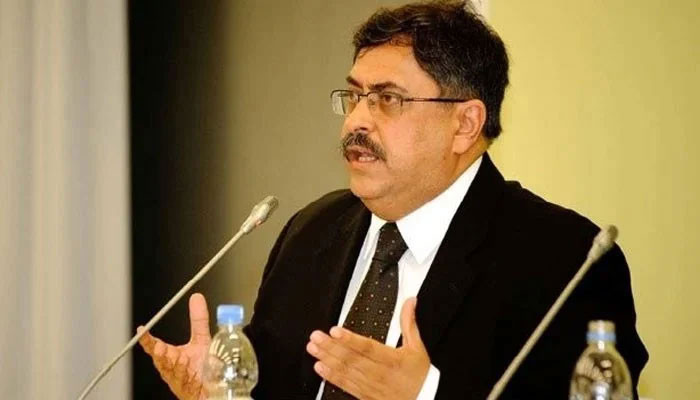Justice Minallah Reflects on Pakistan’s Judicial History
Supreme Court Justice Athar Minallah voiced his concerns that Pakistan’s 77-year judicial record provides little to celebrate. He emphasized the critical importance of upholding the Constitution and ensuring governance is accountable to the populace.
Addressing attendees at a Karachi Bar Association gathering, Justice Minallah acknowledged the Karachi Bar’s esteemed position in the nation. He asserted that anyone questioning the Constitution’s preeminence should observe the Karachi Bar, recognizing its significant contributions.
Justice Minallah remarked that the nation’s legal framework has evolved over seven decades in such a way that naming even a handful of judges is challenging for citizens.
He lauded judges who resisted swearing allegiance to the Provisional Constitutional Order (PCO), particularly those from Sindh. Some, he noted, were potential future chief justices who prioritized their oath.
He acknowledged historical figures like Justice Bachal, Justice Vilani, Justice Constantine, and Justice Bakhsh, who chose principles over personal advancement.
The judge remembered the sacrifices of 90 lawyers during the lawyers’ movement, commending leaders such as Munir A. Malik for championing the rule of law and constitutional integrity. He stated that their contributions remain an invaluable debt.
Justice Minallah expressed regret over Pakistan’s historical deficiency in constitutional governance. He emphasized that a judge’s core duty is to ensure constitutional rule, failure to do so would violate their oath.
He affirmed his commitment to deciding cases impartially and defending the Constitution, recognizing his accountability to the people and to a higher power.
Comparing Pakistan to Britain, he pointed out that despite lacking a formal written constitution for over a century, Britain maintains a strong rule of law. He lamented that Pakistan’s history and educational content have been misrepresented and cautioned that societies that disregard truth risk self-destruction.
Justice Minallah recounted that during Pakistan’s formation, a constitution was being jointly developed for both parts of the country by a legitimately elected assembly, rather than through manipulation.
However, the assembly was disbanded by military and civilian powers once the constitution was finalized, setting the stage for Pakistan’s eventual fracturing.
He stated that while Bengalis did not initially seek separation, they were, as early as 1962, labeled a burden by those in power. He recommended reading Justice Munir’s writings to grasp how constitutional deviations have negatively impacted the country.
Highlighting the Karachi Bar’s historic role, he mentioned its support for Fatima Jinnah against dictatorship. He expressed concern over judicial susceptibility to influence, citing General Zia-ul-Haq’s denial of pressuring the judiciary during Bhutto’s trial, which was later contradicted by judges who confessed that pressure led to Bhutto’s execution.
He noted that Justices Haleem and Turab Patel were among the three judges who dissented at the time.
Justice Minallah concluded by stating that ultimate authority resides with the people and that the essence of the Constitution is that the power to govern belongs to the citizenry. He cautioned against any institution engaging in political manipulation, advocating for transparently elected representatives.
He added, “Regrettably, this vision has yet to be realized for us,” and noted that, “Dictatorships often maintain the appearance of legitimacy through elections, but these elections are seldom genuinely fair.”



Comments (0)
No comments yet. Be the first to comment!
Leave a Comment